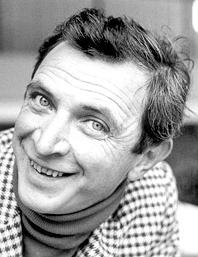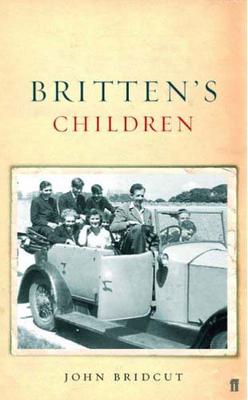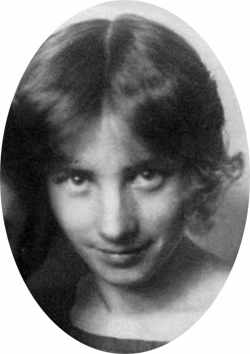Related Research Articles

Edward Benjamin Britten, Baron Britten was an English composer, conductor, and pianist. He was a central figure of 20th-century British music, with a range of works including opera, other vocal music, orchestral and chamber pieces. His best-known works include the opera Peter Grimes (1945), the War Requiem (1962) and the orchestral showpiece The Young Person's Guide to the Orchestra (1945).

Sir William Turner Walton was an English composer. During a sixty-year career, he wrote music in several classical genres and styles, from film scores to opera. His best-known works include Façade, the cantata Belshazzar's Feast, the Viola Concerto, the First Symphony, and the British coronation marches Crown Imperial and Orb and Sceptre.
Deryck Cooke was a British musician, musicologist, broadcaster and Gustav Mahler expert.

Frank Bridge was an English composer, violist and conductor.

Imogen Clare Holst was a British composer, arranger, conductor, teacher, musicologist, and festival administrator. The only child of the composer Gustav Holst, she is particularly known for her educational work at Dartington Hall in the 1940s, and for her 20 years as joint artistic director of the Aldeburgh Festival. In addition to composing music, she wrote composer biographies, much educational material, and several books on the life and works of her father.
Colin Matthews, OBE is an English composer of contemporary classical music. Noted for his large-scale orchestral compositions, Matthews is also a prolific arranger of other composer's music, including works by Berlioz, Britten, Dowland, Mahler, Purcell and Schubert. Other arrangements include orchestrations of all Debussy's 24 Préludes, both books of Debussy's Images, and two movements—Oiseaux tristes and La vallée des cloches—from Ravel's Miroirs. Having received a doctorate from University of Sussex on the works of Mahler, from 1964–1975 Matthews worked with his brother David Matthews and musicologist Deryck Cooke on completing a performance version of Mahler's Tenth Symphony.
James Michael Bernard was a British film composer, particularly associated with horror films produced by Hammer Film Productions. Beginning with The Quatermass Xperiment, he scored such films as The Curse of Frankenstein and Dracula. He also occasionally scored non-Hammer films including Windom's Way (1957) and Torture Garden (1967).

John Cyril Cranko was a South African ballet dancer and choreographer with the Royal Ballet and the Stuttgart Ballet.

Noye's Fludde is a one-act opera by the British composer Benjamin Britten, intended primarily for amateur performers, particularly children. First performed on 18 June 1958 at that year's Aldeburgh Festival, it is based on the 15th-century Chester "mystery" or "miracle" play which recounts the Old Testament story of Noah's Ark. Britten specified that the opera should be staged in churches or large halls, not in a theatre.

Britten's Children is a scholarly 2006 book by John Bridcut that describes the English composer Benjamin Britten's relationship with several adolescent boys. Bridcut has been praised for treating such a sensitive subject in "an impeccably unsensational tone". The Britten-Pears Foundation described the book as having been "enthusiastically received as shedding new light on one of the most interesting aspects of Britten's life and career, in a study that is thoroughly researched, wonderfully readable and thought-provoking". Bridcut's book followed his television documentary Britten's Children shown on BBC2 in June 2004.
Donald Charles Peter Mitchell CBE was a British writer on music, particularly known for his books on Gustav Mahler and Benjamin Britten and for the book The Language of Modern Music, published in 1963.

The Wandering Scholar, Op. 50 is a chamber opera in one act by the English composer Gustav Holst, composed 1929–30. The libretto, by Clifford Bax, is based on the book The Wandering Scholars by Helen Waddell.
Variations on a Theme of Frank Bridge, Op. 10, is a work for string orchestra by Benjamin Britten. It was written in 1937 at the request of Boyd Neel, who conducted his orchestra at the premiere of the work at that year's Salzburg Festival. It was the work that brought Britten to international attention.
Friday Afternoons is a collection of twelve song settings by Benjamin Britten, composed 1933–35 for the pupils of Clive House School, Prestatyn, Wales where his brother, Robert, was headmaster. Two of the songs, "Cuckoo" and "Old Abram Brown", were featured in the film Moonrise Kingdom. "A New Year Carol" was included in the soundtrack of the film Challengers.

Sophie Adele Wyss was a Swiss soprano who made her career as a concert singer and broadcaster in the UK. She was noted for her performances of French works, many of them new to Britain, for giving the world premieres of Benjamin Britten's orchestral song cycles Our Hunting Fathers (1936) and Les Illuminations (1940), and for encouraging other composers to set English and French texts. Among those who wrote for her were Lennox Berkeley, Arnold Cooke, Roberto Gerhard, Elizabeth Maconchy, Peter Racine Fricker, Alan Rawsthorne and Mátyás Seiber.

Clytie May Hine, was an Australian-born operatic soprano who became a renowned voice teacher in New York.

Children's Crusade, Op. 82, subtitled a Ballad for children's voices and orchestra is a composition by Benjamin Britten. He completed it in 1969, setting Bertolt Brecht's poem Kinderkreuzzug 1939 for children's choir with some solo parts, keyboard instruments and an array of percussion, to be performed mainly by children. It was first performed in an English version at St Paul's Cathedral in London on 19 May 1969.
Beware! Three Early Songs is a song cycle for voice and piano composed by Benjamin Britten and set to texts by Herbert Asquith, Robert Burns and Henry Wadsworth Longfellow.

An American Overture, Op. 27 is an orchestral composition by Benjamin Britten. It was composed in 1941, while Britten and his life partner, the tenor Peter Pears, lived in the United States. Personal difficulties, global events, and the desire to earn more money goaded Britten to leave England and pursue a career in the United States.

The Tema "Sacher" is a composition for solo cello by Benjamin Britten. He composed it between December 1975 and January 1976. It resulted from a request by the cellist Mstislav Rostropovich, who sought to assemble a collaborative musical work from various composers to commemorate the seventieth birthday of the music patron Paul Sacher. Rostropovich premiered the work at the Tonhalle in Zurich, Switzerland, on May 2, 1976. It was the last of Britten's works to be premiered in his lifetime.
References
- 1 2 "Plymouth Town". Faber Music. Retrieved 25 January 2020.
- 1 2 "Britten 100 - First staging of 'Plymouth Town' ballet". Faber Music. Archived from the original on 10 September 2016. Retrieved 25 January 2020.
- 1 2 3 "BTC726 Plymouth Town". Britten Thematic Catalogue. Britten Thematic Catalogue. Retrieved 25 January 2020.
- ↑ Paul Kildea (28 January 2013). Benjamin Britten: A Life in the Twentieth Century. Penguin Books Limited. ISBN 978-0-14-192430-4.
- ↑ David Rowland; Mervyn Cooke (28 June 1999). The Cambridge Companion to Benjamin Britten. Cambridge University Press. p. 33. ISBN 978-0-521-57476-1.
- 1 2 3 John Bridcut (30 October 2012). Essential Britten: A Pocket Guide for the Britten Centenary. Faber & Faber. ISBN 978-0-571-29074-1.
- ↑ David Matthews (15 October 2013). Britten: Centenary Edition. Haus Publishing. p. 141. ISBN 978-1-908323-41-5.